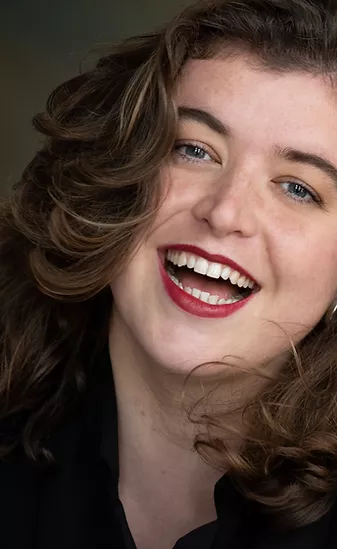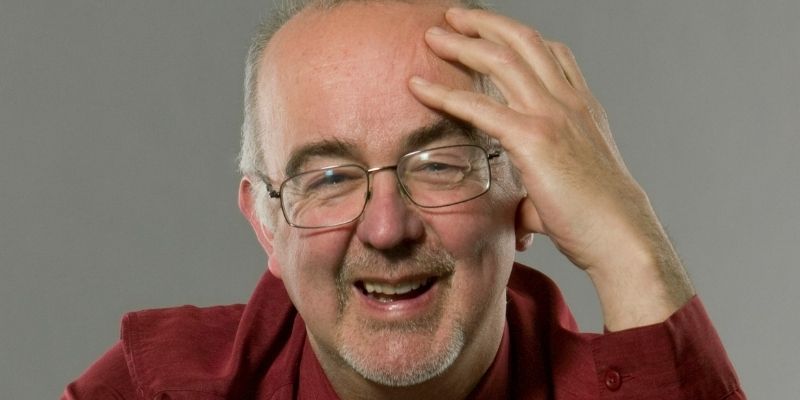
Jess Dandy/Martin Roscoe & Robin Tritschler/Christopher Glynn, Howard Assembly Room, Leeds, April 29
THOSE of us who had not encountered Jess Dandy before, your correspondent included, cannot have avoided reading that she had been likened to Kathleen Ferrier in a national newspaper.
It is an unfortunate comparison and should be dropped before it becomes burdensome. She is indeed that endangered species, a true contralto, which alone entitles her to our attention. She may in time become the one and only Jess Dandy – but she is not Ferrier.
I confess that what initially drew my attention was her accompanist: Martin Roscoe is a supreme musician and a very busy one. Anyone who claims his time deserves our respect, especially since he is most often found as a solo performer.
With that rant out of the way, we may concentrate on Dandy’s lunchtime programme, which opened with Amy Beach and Lili Boulanger before moving onto more familiar territory with Falla, Wolf and Tchaikovsky, each of her five groups therefore in a different language.
Oddly enough, her diction in Beach’s three Robert Browning songs was almost consonant-free, but her tone was richly textured which excited anticipation.

In four unrelated songs by Boulanger, three from her teenage years, she penetrated the surface better. In two Maeterlinck poems, her high ending to ‘Reflets’, finding consolation in the moon, was beautifully controlled and the illusory ‘Attente’ (Waiting) was properly bleak. The prospect of Ulysses’s return to Ithaca brought compensatory joy to her tone.
Falla’s settings of seven traditional Spanish folksongs generally needed a lighter touch to match Roscoe’s impeccable staccatos. These works look easier on paper than they really are.
It was only when Dandy came to Wolf’s Mörike settings (1888) that her diction really began to shine. ‘Er ist’s’ (Spring Is Here) was wonderfully ecstatic, rounded off by the piano’s peerless postlude. She had a real feel for the bitter-sweet ‘Verborgenheit’ (Seclusion) and danced nimbly as the water-sprite Reedfoot alongside the piano’s curlicues. Both performers revelled in the dramatic possibilities of ‘Der Feuerreiter’ (The Fire-rider), while ending peacefully.
Dandy was equally well-suited to four Tchaikovsky songs. Voice and piano neatly intertwined in a Tolstoy poem about spring. There was a wonderfully pained melisma at the end of ‘I was a little blade of grass’ (the girl had been married off against her will). Even if the final climax of ‘Can it be day?’ was not quite full enough, we knew she had these songs in her bloodstream; Roscoe’s postlude was another little masterpiece.
This young lady certainly has talent. She can now afford to be less concerned about delivering perfect tone and concentrate more on acting with her voice.

The second evening supplied my fourth recital of the festival. But it was the first in which the singer used no music. Thirty years ago, this would not have been a cause for comment. But times have changed and musicians are no longer routinely learning their scores by heart. One might have thought that during the ‘downtime’ provided by the pandemic, this might have changed. But no.
The hero in question was tenor Robin Tritschler, whose first half – ‘Illuminated Music’ – was English, Britten’s own works framing his realisations of Croft and Purcell. After half-time, we had ‘Illuminating Songs’ from further afield, eight composers stretching from Schubert to Henry Mancini. His admirable partner was Christopher Glynn.
Coloratura flowed easily in ‘Let The Florid Music Praise’ (On This Island) and Croft’s A Hymn To Divine Musick turned the temperature up further. All his Purcell set was characterised by a focus and intensity that was communicated all the more directly by the absence of a music-stand between audience and singer.
‘Music For A While’ enjoyed crispness in both voice and piano, which spilled over strongly into the finish of ‘Sweeter Than Roses’. The darting sections and crazy swings of ‘Mad Bess’ were finely wrought, with Glynn injecting just the right level of fire without dominating.

Britten’s Canticle I: My Beloved Is Mine was hugely convincing, a tenderly felt duet that did full justice to Quarles’s spiritual paraphrase from the Song Of Solomon. Glynn’s flowing piano alongside Tritchler’s vocal freedom came to a close of the utmost serenity.
Moonlight suffused virtually all the second half. The atmosphere was movingly set by Schubert’s incomparable setting of Leitner’s ‘Der Winterabend’: the piano’s seamless line matched the tenor’s legato.
Fauré’s ‘Clair de Lune’ conjured intimacy while Hahn’s ‘L’heure Exquise’ delivered perfumed scents. Mancini’s nostalgic ‘Moon River’, with its Beethovenian opening was nicely balanced by Howells’s setting of De la Mare’s ‘Full Moon’, which disappeared into a niente finish.
Tritschler really opened out in the climactic moments of Liza Lehmann’s ‘Ah, Moon Of My Delight’ (In A Persian Garden), after which Coleridge-Taylor’s ‘Big Lady Moon’ made the perfect encore. This was a particularly satisfying occasion, with both musicians on excellent form.
Review by Martin Dreyer
